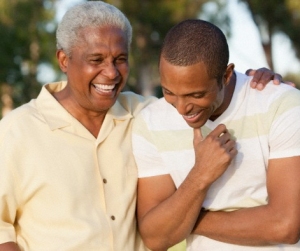“Be happy for this moment. This moment is your life.” — Omar Khavyam, 11th Century Persian poet
Habit #4: Present orientation and mindfulness.
While Habit #3 (Coping skills and forgiveness) mostly pertains to how we deal with things that have already happened to us, Habit #4 is centered squarely in the here and now.
Sometimes we get on autopilot. We feel so stressed or so rushed that we walk around like robots, in a daze, jumping from here to there, switching from channel to channel while life just passes us by.
Dr. Rich Hanson writes in his book Hardwiring Happiness about finishing one task and then shifting to the next with “little sense of accomplishment.” He writes, “We hear the children laughing, but it doesn’t lift our hearts.” I call this zoning out.
Present orientation and mindfulness are about living in the moment and enjoying the moment that we’re living in.
How can we be happy people if we don’t notice even the happiest moments going on all around us? Happy people are oriented and rooted in the present. Instead of zoning out, they tune in. They are mindful, they keep their mind open, and they savor the good things that are going on to them and around them.
Life is a series of moments, and we can decide to be happy in this moment, right now, not some distant moment way off in the future. Happy moments accumulate into happy hours, happy days, happy weeks and a happy lifetime.
Dr. Hanson presents a framework for hardwiring happiness that he calls “taking in the good.” Mindfulness is another word for this practice. The first three steps of taking in the good are 1) to have a positive experience, 2) to enrich it and 3) to absorb it.
A pleasant experience can be as simple or as complicated as you want to make it.
A very simple pleasant experience is the sensation of running water, like in the picture at the top of this blog. Maybe we are running our hands under warm or hot water, washing dishes or in the shower, washing our hair. Or maybe on a hot day, we are cooling off with some refreshing cold water. Notice the feel of the water, the wetness of it, the temperature, the force of the drops.
Enrich the experience by drawing it into attention and letting the pleasantness of the moment become stronger and more intense. Absorb it by allowing the feeling to sink in, absorbing into your skin, your bones, your lungs.
We can do this with all sorts of experiences that play on all five senses: warm sunshine, a good smell, the taste of fresh herbs, a favorite song, children playing and laughing, a sense of pride in something we have accomplished.
Think for a second now about this present moment and something positive to focus on. Recognize the positive experience. Enrich it. Absorb it.
To read the other blogs in this series:
Part 1 http://wp.me/p2SXH1-4h
Part 2 http://wp.me/p2SXH1-4j
Part 3 http://wp.me/p2SXH1-4r
Part 4 http://wp.me/p2SXH1-5J
Part 6 http://wp.me/p2SXH1-6x
Part 7 http://wp.me/p2SXH1-6J
Part 8 http://wp.me/p2SXH1-6T

